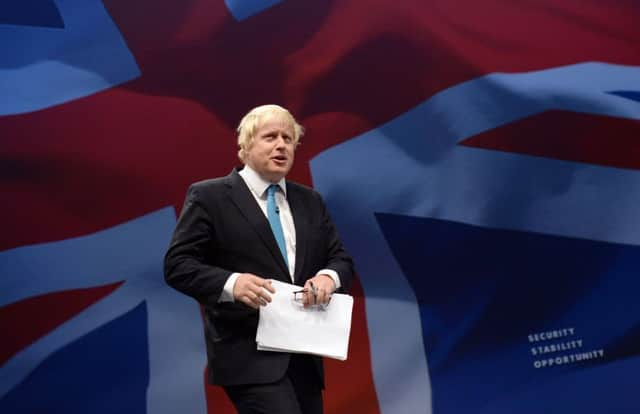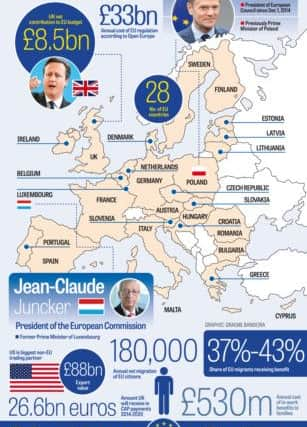Yorkshire prepares for once-in-a-generation decision


The same refrain is already being used about the referendum on Britain’s membership of the European Union. And for once, the people uttering it are right.
The last time British voters had their say was 1975 and there is every reason to believe it will be several decades before another referendum is held.
Advertisement
Hide AdAdvertisement
Hide AdAnd while of secondary importance, political futures and legacies are also at stake, not least for the Prime Minister who would struggle to remain in office if the British public ignored his pleas for a ‘remain’ vote.


So for the next 18 weeks, voters will be told that their jobs, their standard of living, their environment and even their security will be at stake when they go to the polls on June 23.
“I am an optimist, the reason that I have got involved in this is because whichever way you look at it I feel we are constrained by the European Union,” says Carl Chambers, Yorkshire chairman of the Business for Britain campaign.
“In terms of how the argument develops, I think certainly Cameron’s failure to achieve what I would regard as anything near any fundamental change is the key part.
Advertisement
Hide AdAdvertisement
Hide Ad“He’s openly stood up and said ‘we need to get fundamental change and if we didn’t get that I could see me campaigning to leave’. Well he hasn’t got fundamental change and he won’t be campaigning to leave so that says something about credibility.


“But I think the argument that myself and Business for Britain will be putting forward is that it’s the fundamentals that are wrong. The negotiation is part of it but we are not in an organisation that works for Britain.
“If we were outside of the EU we would be able to carry on trading as we always have done with the rest of the World and with the EU. So my spin is much more positive.
Mr Chambers insists the ‘leave’ campaign will not be harmed by voter confusion at the range of messages put forward by different groups.
Advertisement
Hide AdAdvertisement
Hide Ad“We have been in this organistion for 43 years, people have different views about what really annoys them about it, what really worries them about.
“So it doesn’t worry me because I think what happens is you get the message across from several different view points but it’s the same fundamental message.”
It is a view shared on the opposite side of the argument by Yorkshire MEP Richard Corbett whose Labour Party has pointedly said it will campaign separately to the Prime Minister for an ‘in’ vote.
“Although on the ‘remain’ side we will be emphasising different points it is not as if we are divided from others on the objective,” he says.
Advertisement
Hide AdAdvertisement
Hide AdMr Corbett also echoes the concerns about the referendum campaign becoming a debate about the Prime Minister’s reform deal rather than the wider issue of EU membership.
“We have got to remember the referendum is not yes or no to Cameron’s deal, the referendum is yes or no to the much bigger question of our very membership of the European Union, which is vital for Britain, for its jobs for the environment, for prosperity.
“You’ve got to present the positive side but you can’t neglect the negatives, the risks of leaving, that’s true. Which far outweigh any risks of staying because if you stay you have a voice around the table.”
The 18-week-long referendum campaign is three times the length of a typical General Election but Mr Corbett insists the risks of voter fatigue are outweighed by the importance of getting the decision right.
Advertisement
Hide AdAdvertisement
Hide Ad“Four months is on the one hand a long time, that’s true, and people may fed up of it by then but it is also one of the key questions in British history. If we march off, walk out slamming the door, off into isolation it will have such long term consequences it doesn’t bear thinking about. So giving it some thought and care and attention is well worthwhile.”